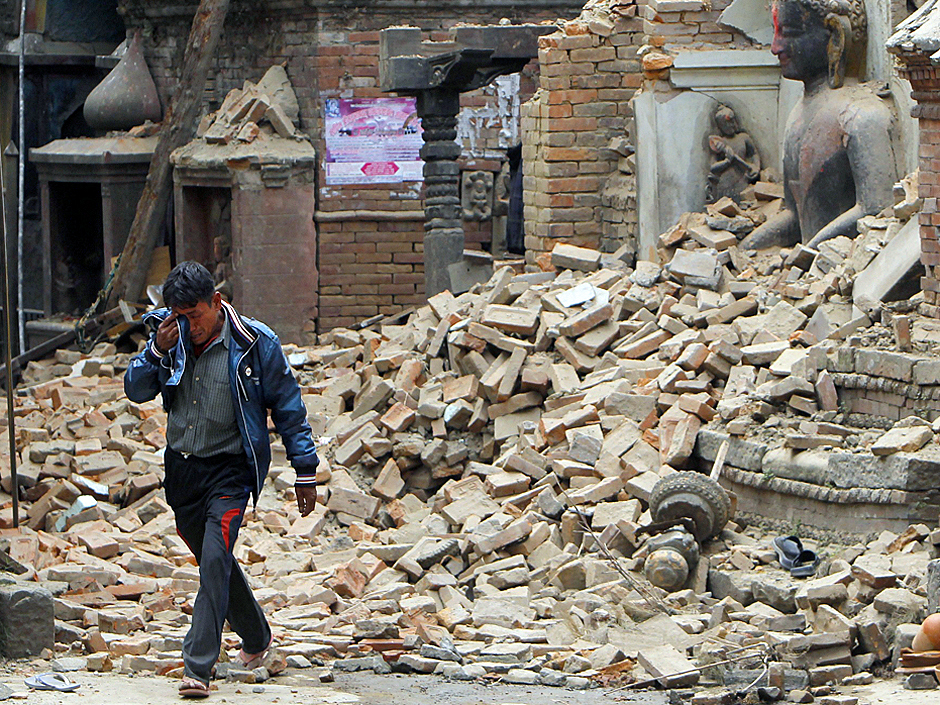
Shraddha Kharel-Pandey joined ICMA International in 2005. With more than ten years of international development and program management experience in Asia, the Middle East, Eastern Europe, and Central America, multilingual Shraddha (she speaks English, Nepali, Hindi, and Urdu) is committed to improving the lives of individuals across the globe. She has served ICMA International in a number of capacities, most recently, as regional director for Asia.
On April 25, Shraddha’s family experienced firsthand the 20-second, 7.8-magnitude earthquake (and subsequent aftershocks) that took place in Nepal and resulted in more than 8.000 deaths, not including an unaccounted for number of foreign nationals. Shraddha describes the current situation in Nepal as “dire and beyond comprehension for most of us here [in the United States].” Her family has been helping with relief efforts in the Kavre District outside Kathmandu, which was hit hard by the earthquake, and most of the villages in that area are little more than rubble.
Shraddha’s father was born in Kavre, and while her family lost their ancestral home, they were fortunate in that they did not lose their primary home in Kathmandu. Most people in the villages have no other home to go to and, subsequently, have no shelter, clean water, medicine or clothes.
“There are a lot of little children, some of whom are homeless and orphans now,” says Shraddha. “Most of the people in these villages were already marginalized because they are of the lowest caste called dalits.” Unfortunately, the chances of any government or international aid reaching the villagers are minimal, as all foreign assistance is currently bottlenecked by the government of Nepal. To date most assistance to villages, such as those in the Kavre District, is being delivered through volunteers and local organizations.
Shraddha’s sister is a sociologist who has been working closely with and advocating for the dalit community in the Kavre District villages for several years. Currently, she and other members of her family are attempting to distribute food and emergency supplies to 15 villages in the area.
The next steps in the cleanup and reconstruction of Nepal and the Kavre District specifically will require considerable resources. While many funds contributed to traditional organizations will take time to mobilize and may not reach the Nepalese in the remote dalit villages, there are other groups that are quickly getting resources to remote areas.

Shraddha Kharel-Pandey, ICMA International's Regional Director, Asia
Shraddha urges anyone who is interested in making a donation to give to the Kavre relief effort, which is led by her family. “Every penny we can send will make it to the victims in just a few days,” she says. “No amount is too small, and anything you can give will make a tremendous difference. For instance, $100 will buy a corrugated metal roof for a home that most villagers cannot afford to buy on their own. All funds will be accounted for and reported on.”
Tax-deductible donations to the Kavre relief effort can be made to Hoste Hainse, a 501(3)c organization which, in addition to purchasing and distributing immediate relief, has also been active in coordinating logistics and transportation for international search and rescue teams. To make donations, go to the Hoste Hainse site, click “Donate” in the upper right, and then scroll down until you see “Nepal Earthquake Relief Fund - Kavre Relief” on the right-hand side.
New, Reduced Membership Dues
A new, reduced dues rate is available for CAOs/ACAOs, along with additional discounts for those in smaller communities, has been implemented. Learn more and be sure to join or renew today!
